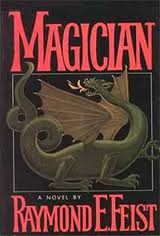As most of you will already know, these are Kurt Vonnegut’s rules for writing short stories:
1. Use the time of a total stranger in such a way that he or she will not feel the time was wasted.
2. Give the reader at least one character he or she can root for.
3. Every character should want something, even if it is only a glass of water.
4. Every sentence must do one of two things -- reveal character or advance the action.
5. Start as close to the end as possible.
6. Be a sadist. No matter how sweet and innocent your leading characters, make awful things happen to them -- in order that the reader may see what they are made of.
7. Write to please just one person. If you open a window and make love to the world, so to speak, your story will get pneumonia.
8. Give your readers as much information as possible as soon as possible. To heck with suspense. Readers should have such complete understanding of what is going on, where and why, that they could finish the story themselves, should cockroaches eat the last few pages.
Seven of these rules for writing short stories are pretty easy to agree with. They make sense and although they may not be as straightforward to employ as the list might make it seem, they’re probably worth pursuing. And even if you choose to do it differently, you can still understand what he meant.
But number eight is an odd thing to say, and one I’ve never really understood. So I'd like to take a closer look at it.























































































































































